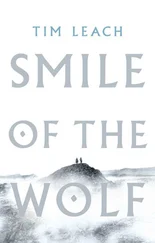A shake of the head. ‘Too many. Raiders.’
A chill touch, then, that started at the nape of Kai’s neck and danced down his spine. This time, a sensation not of fear, but of hate. ‘Come to hunt our people, after the battle on the ice.’ He turned his horse away, to speak to the warband. ‘They cannot cross the swamp here,’ he said, ‘and we shall be long gone by the time they have made it round.’
One of the riders spoke, a man Kai did not know well: ‘We let them go?’ For the first time since he had taken the captaincy, there was a mutter of dissent.
Kai could not help but smile. Three days through mud and mire, wounded and with barely a spear for every three riders, and still they thought only of the hunt.
‘I think we may have mercy on them for now. But let them know what you think of them.’
And at once the warband were alive with noise – cheering, jeering, screaming insults. It was a far distance to the other side, but those horsemen must have heard something, or seen the movement at least. For they were in motion, seeming to shout back, and the wind brought the Sarmatians something of their reply – the barest whisper of a curse.
With a few last choice insults bellowed through the air, the riders broke from their ranks and began to wander back across the plain once more. Only Laimei lingered behind.
Kai watched as, with a little sigh of pain, she lifted her wounded arm. There was a sword in her hand, a Roman blade that he had gifted to her. She lifted it high, then levelled it down towards the riders in the distance. Towards their leader.
To Kai’s surprise, he saw the spear lifted and pointed in response. The challenge seen, and answered.
For the first time in as long as he could remember, he saw his sister smile.
*
Later, when night had fallen on the plain, Kai let them have a fire.
No roaring blaze, but a smoking, smouldering thing of bone and dung and wet grass. To them it was as good as a chieftain’s fire stacked high with precious wood and burning clean through until the dawn. They huddled close to it, lying down together like packs of dogs.
Most collapsed into sleep at once, taking all the rest they could before it was their turn to stand guard. Those unlucky men and women who had drawn poorly in the lot remained on horseback, doing slow loops of the camp and singing to themselves to stay awake.
Still, there were those who were not on guard and yet did not sleep. They gathered close to the fire, passing around what little koumiss was left, staining beard and chin with the stink of fermented milk. They did not sing, or read the stars for the stories of old heroes. They did not speak of what might come to pass, or tell of the victories of their youth. For they had left thousands of their kin upon the frozen water, to be swallowed by the river when the first thaws came. No barrow dug, no fire lit above or sword placed to mark the place, no grave gifts to take with them to the Otherlands. And so that night, they buried the dead with words.
So many to speak of, spirits clustering unseen about the fire, pleading for the story that would set them free. And only one way that the speakers might choose from those ghosts, to speak of the one that mattered most.
It was an older rider, one they called Saratos, who was the first to talk. In the circle of dozing warriors, his voice sounded cleanly out.
‘My cousin. Opoea. She was so frightened,’ Saratos said. ‘Never could do much right. But I remember how she was with the horses. How they were with her. She’d have liked to be one, I think. Perhaps the wrong spirit wandered into the wrong body when she was born.’ He drank deeply from the koumiss, then let his head sink into his hands. ‘Her own horse kicked her to death when she fell in the mob. He was frightened too, I suppose. She should have ridden a braver horse, but she loved that one above all others.’
A muttered chorus about the fire, of sorrows and memories, and the consolations of the next world. Then silence, until the next voice to speak broke out into the night.
‘Pideis. My friend.’ It was Gaevani who spoke, his fingers picking restlessly at the shaft of an arrow that he held in his hands, turning it over and over and over again. ‘We grew up together. We shared everything. He did, anyway – anything he was given, half of it he gifted to me.’ A pause. ‘Sometimes I hated him for it. We had not spoken in a long time. I thought that there would be time.’ And with that, he took the arrow, broke it in half, and laid a piece of it down next to him. He lifted his head, and spoke to the circle, as if in defiance: ‘I loved him, once.’
Silence, for a time. Around the fire, there were men who held their companions a little tighter at those words. And women, who looked with longing at faces across the fire.
A voice came from the darkness, one that Kai could not place. ‘How did he die?’
‘Rode at the front of the pack – too far in front,’ said Gaevani. ‘Perhaps he wanted me to see.’ His eyes drifted out of focus, into memory. ‘A thrown spear put him down. And the rest of us rode over him in the charge.’
A toast was given, prayers sounded out. Then other voices, one at a time. Each spoke a name, a memory of the dead, and then the way that they had died – the mistake they had made. A slackly tightened saddle, a reckless thrust of the spear, a poorly trained horse. That knowledge a last gift from the dead, so that the living might not meet the same end.
They had spoken long into a changing of the guard, and there were few left around the fire still awake. Kai was at the borderlands of the mind, where the dream and the real intermingle, when he heard his name spoken. He was not certain at first whether it was from the waking world that he heard the voice, whether it was the living or the dead who called to him.
But it was Tamura who sounded his name. ‘Will you speak, Kai?’ she said, and the eyes of the circle were upon him.
Would it be right, for the captain to speak of what he had lost? Or should he be a man without feeling to them? Kai tried to think of the old stories, whether those heroes had never spoken a word of grief or wept at every fireside, but they all seemed to tangle in his head, the heroes weeping and silent all at once like the madness of a dream.
The skin of koumiss came to him once more, and as the thick, bitter taste settled on his tongue he found that he did not care what others had done, only what he would do. He knew that there was someone that he had to speak of.
‘Bahadur,’ he said.
A murmur round the fireside. For a man as good with song and spear as Bahadur had been was known beyond his clan.
‘A second father he was to me.’ Kai lifted his head, looked about the fire. ‘You have heard how he sang?’
One voice said: ‘Aye. I have.’
Another: ‘He could call the spring birds down, or so I heard it said.’
‘No idle tale, that,’ said Kai, ‘for I saw it happen.’
A mutter of disbelief spread around the circle, and Kai knew that he would have to answer it, as he would have answered a challenge to a duel.
‘Five summers past, we rode north,’ he said. ‘Further north than I have been before. I had heard there was good grazing beyond the mountains, back towards the Sea of Grass. That we might leave the swamplands behind, raise tall horses and fat cattle.
‘Well, we did not find it. We did not go far enough, perhaps. But there was a forest we passed, and I have never seen a place so alive with birds. It must have been a place where the hawk did not hunt, and no boys came with arrow and sling.
‘And Bahadur sang at them as we rode, trying out one birdsong after another – the high trills and the quick chatter. And at last, there must have been one that he perfected. For one of those birds came down – darting, confused, singing its answer to the question he must have asked it.’ Kai raised a hand, extended a finger. ‘Right here is where it landed.’
Читать дальше
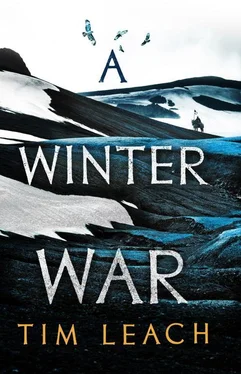
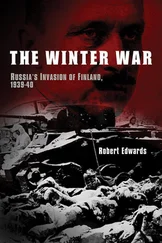

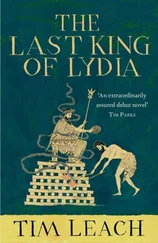
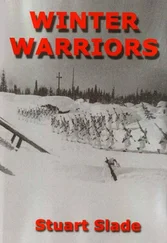
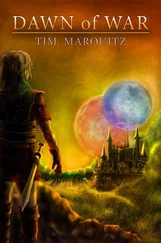

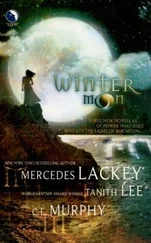
![Стюарт Слейд - Воины зимы [Winter Warriors ru]](/books/401383/styuart-slejd-voiny-zimy-winter-warriors-ru-thumb.webp)
